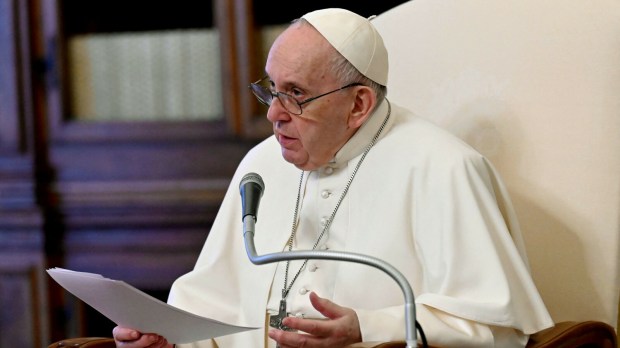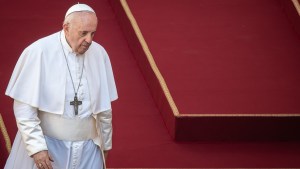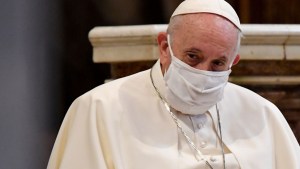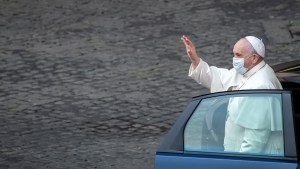“There is no question of slowing down technological progress” but it must be supervised to “protect human dignity when it is threatened,” declared Pope Francis in front of 200 Catholic parliamentarians received in audience at the Vatican on August 27 2021. The Pontiff asked them to come up with “prudent legislation” to orient technological evolution towards the common good.
The Pope welcomed members of the International Catholic Legislators Network in the Clementine Hall of the Apostolic Palace. Established in 2010, the ICLN, is under the patronage of the Archbishop of Vienna, Cardinal Christoph Schönborn, and aims to bring together Christian lawmakers driven by concern for the common good.
At the start of his speech, Pope Francis apologized for not being able to stand while delivering the address. “I am still in the post-operative period and I have to be sitting down,” he explained. In early July, the pontiff underwent colon surgery which required general anesthesia and ten days of hospitalization.
Technology and the common good
In his ten-minute speech, he recognized “the wonders of modern science and technology.”But he also pointed out certain abuses in the use of new technologies. “I am thinking, for example, of the scourge of child pornography, the exploitation of personal data, attacks on sensitive infrastructure such as hospitals, false information disseminated on social networks,” he said.
Pleading for “prudent legislation,” Pope Francis called on elected Catholic officials to undertake “serious moral reflection” on the risks and opportunities inherent in scientific and technological progress. Failing to focus on progress for himself, the Pope encouraged lawmakers to aim first at promoting integral human development and peace.
The devastation of the pandemic
Pope Francis also called attention to the devastation caused by the Covid-19 pandemic, “a terrible scourge” which has already caused the death of four million people around the world, he lamented. Welcoming the discovery and distribution of “effective vaccines,” he acknowledged that there was still a long way to go.
“Your role as parliamentarians is therefore more important than ever,” he insisted. “Appointed to serve the common good, you are now called to collaborate, through your political action, in the global renewal of your communities and of society as a whole.”
Pope Francis re-iterated that this work is not just about beating the virus or getting back to the pre-pandemic situation; “It would be a failure.” It is really about tackling the root causes that the crisis has revealed and amplified: poverty, social inequalities, widespread unemployment and lack of access to education. Departing from his notes, he again warned, “You don’t come out of a crisis the same way: you come out better or worse.”




